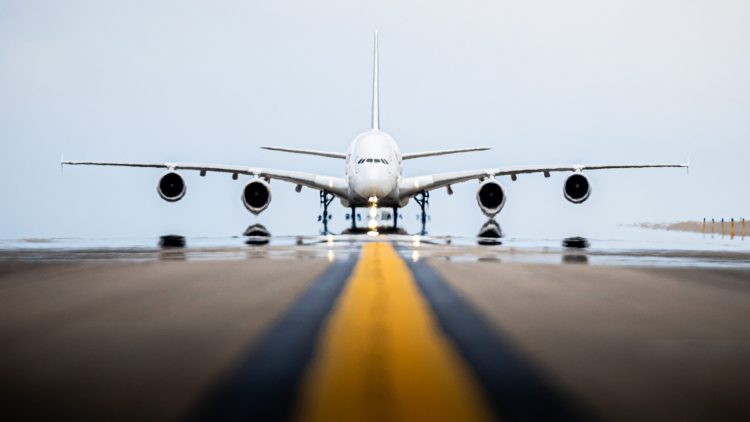Introduction
In recent years, travelers have faced an increasing number of flight delays and cancellations. Whether it’s due to weather, labor strikes, or the sheer volume of air traffic, delays have become an all-too-common part of the travel experience. While these disruptions can be frustrating, the silver lining is that many travelers rely on travel insurance to mitigate the financial impact of such setbacks. But as flight delays continue to rise and evolve, the question arises: is travel insurance really keeping up with these changes?
For decades, travel insurance has been seen as a safety net for various travel-related disruptions, such as trip cancellations, lost luggage, and medical emergencies. However, with airlines increasingly facing operational challenges, especially in the wake of the pandemic and global travel surges, the question of whether travel insurance policies cover these new and evolving issues is more important than ever.
In this article, we’ll explore the growing problem of flight delays, how travel insurance policies address these disruptions, and whether these insurance products are keeping pace with the changing landscape of air travel.
1. The Rise in Flight Delays and Cancellations
Before diving into how travel insurance responds to these disruptions, it’s important to understand why flight delays have become so frequent. Several factors contribute to the problem, including:
- Post-Pandemic Surge: The global aviation industry was severely disrupted by the COVID-19 pandemic. As restrictions lifted, there was a massive surge in demand for travel. Airlines, struggling to quickly ramp up their operations, faced staffing shortages, insufficient resources, and operational inefficiencies.
- Staff Shortages: Many airlines and airports are still grappling with labor shortages. Pilots, flight attendants, ground crew, and air traffic controllers are in high demand, but the workforce remains stretched thin, leading to delays and cancellations.
- Weather and Climate Change: Extreme weather events, such as hurricanes, blizzards, and thunderstorms, continue to affect flight schedules. Climate change is contributing to the increased severity of these weather events, which in turn results in more cancellations and delays.
- Overcrowded Air Traffic: As airlines are gradually returning to pre-pandemic flight schedules, the skies are becoming more crowded. Limited airspace and congested airports lead to longer turnaround times and delays, especially in major hubs like New York, London, and Dubai.
All of these factors combine to create a challenging environment for air travelers, resulting in frequent flight disruptions.
2. How Travel Insurance Traditionally Handles Delays
For many travelers, travel insurance offers peace of mind by covering unexpected expenses incurred during trip delays. While coverage can vary between policies and insurers, the basic features of most travel insurance policies include:
- Trip Delay Coverage: This type of coverage reimburses travelers for additional expenses incurred during delays, such as hotel stays, meals, and transportation. For example, if a flight is delayed by 12 hours or more, a traveler may be entitled to compensation for meals and lodging.
- Trip Cancellation and Interruption: If a flight delay leads to a missed connection or causes a traveler to miss an important event (like a cruise departure), trip interruption or cancellation insurance can reimburse non-refundable expenses, such as accommodation and tours.
- Baggage and Personal Effects: If a delay causes baggage to be lost or delayed, travel insurance may offer compensation for essential items needed during the waiting period.
- Emergency Evacuation and Medical Expenses: For those traveling abroad, travel insurance can cover medical expenses if a delay causes health issues or if travelers need to seek medical care during long delays.
Generally speaking, traditional trip delay insurance is designed to cover the inconvenience of delays, but it often comes with specific terms and conditions, such as minimum delay times and qualifying reasons for compensation (like mechanical issues or weather disruptions).
3. The Gap in Coverage: New Realities of Air Travel
As flight disruptions become more frequent and complex, many travelers are realizing that their travel insurance policies may not be as comprehensive as they need them to be. Here are a few areas where traditional travel insurance is failing to keep up with the evolving nature of air travel:
3.1 Staffing Shortages and Labor Strikes
While many policies cover delays due to weather or mechanical issues, staffing shortages and labor strikes may not always be included. In 2022 and 2023, numerous strikes by airline employees, including pilots and baggage handlers, led to massive flight disruptions across Europe and North America. While some insurers may cover these disruptions under the broad category of “unforeseen circumstances,” many do not offer explicit coverage for labor strikes or other operational failures caused by staffing issues.
For travelers who are caught in the chaos of an unplanned strike, they may find themselves out of luck if their policy doesn’t explicitly cover these types of delays.
3.2 Long-Term Disruptions and Missed Connections
Another issue travelers face is that long delays often lead to missed connections, especially when multiple flights are involved. While standard travel insurance policies may cover a single delay, they often don’t provide sufficient coverage if a delay causes multiple domino effects, like missed connecting flights or entire segments of a trip.
For example, if a delayed flight causes a traveler to miss a cruise departure or a hotel booking at their final destination, traditional insurance may not always cover those expenses, especially if the reason for the delay falls outside the policy’s “qualifying event” list.
3.3 The Complexity of Coverage for Multiple Delays
Given the growing unpredictability in flight schedules, multiple delays on a single journey are becoming more common. For instance, a weather delay could lead to a crew rest delay, which in turn results in a missed connection and a rebooked flight. The complexity of these interconnected delays may overwhelm standard policies that were designed to cover singular events. In many cases, travelers find that the policies are either too specific or too general to address the cascading issues caused by multiple delays.

4. What’s Changing in Travel Insurance?
The good news is that the travel insurance industry is adapting to these new realities. Several insurance providers are already expanding their policies to cover a broader range of flight-related disruptions:
4.1 Comprehensive Delay and Cancellation Insurance
Some insurance companies now offer “all-inclusive” plans that provide broader coverage for delayed, cancelled, or re-routed flights. These plans often cover staff shortages, labor strikes, and even weather-related disruptions more comprehensively. Instead of limiting coverage to just mechanical failures or specific weather events, these policies may reimburse travelers for a range of disruptions, making it easier for travelers to get compensated when things go wrong.
4.2 Expanded Coverage for Missed Connections
To address the growing issue of missed connections due to flight delays, new travel insurance plans are beginning to offer more generous missed connection coverage. These policies are designed to cover the additional costs incurred if a delay causes a traveler to miss an onward flight, as well as other follow-up expenses, such as rebooking or hotel stays.
4.3 Real-Time Travel Assistance and Support
Many insurance companies are also integrating real-time support services into their policies. This includes access to 24/7 travel assistance teams that can help travelers rebook flights, arrange accommodations, and even offer legal assistance when necessary. With flight disruptions occurring at all hours of the day, having immediate access to a support team can be invaluable in navigating complex situations.
4.4 Focus on “Cancel for Any Reason” Policies
In response to the increasing unpredictability of air travel, “Cancel for Any Reason” (CFAR) insurance policies are becoming more popular. While these policies tend to be more expensive, they offer a flexible, broad range of coverage, and can reimburse travelers for cancellations or interruptions, regardless of the reason. This can be particularly helpful when facing a flight delay that leads to missed connections or other complications that wouldn’t be covered under traditional insurance.
5. Conclusion: Is Travel Insurance Evolving Fast Enough?
Flight delays and cancellations are here to stay, and as air travel continues to face operational challenges, the need for comprehensive, adaptive travel insurance has never been more critical. While some insurance providers are adapting to these changes, there’s still a gap between what travelers need and what traditional policies offer. As the industry evolves, it’s clear that more flexible, comprehensive coverage will be necessary to meet the needs of modern travelers.
For travelers, it’s essential to read the fine print of their policies and consider upgrading to plans that offer more expansive coverage for delays, missed connections, and unpredictable disruptions. Ultimately, the future of travel insurance will likely depend on the ability of providers to offer more flexible, responsive coverage that aligns with the increasingly unpredictable nature of air travel.





















